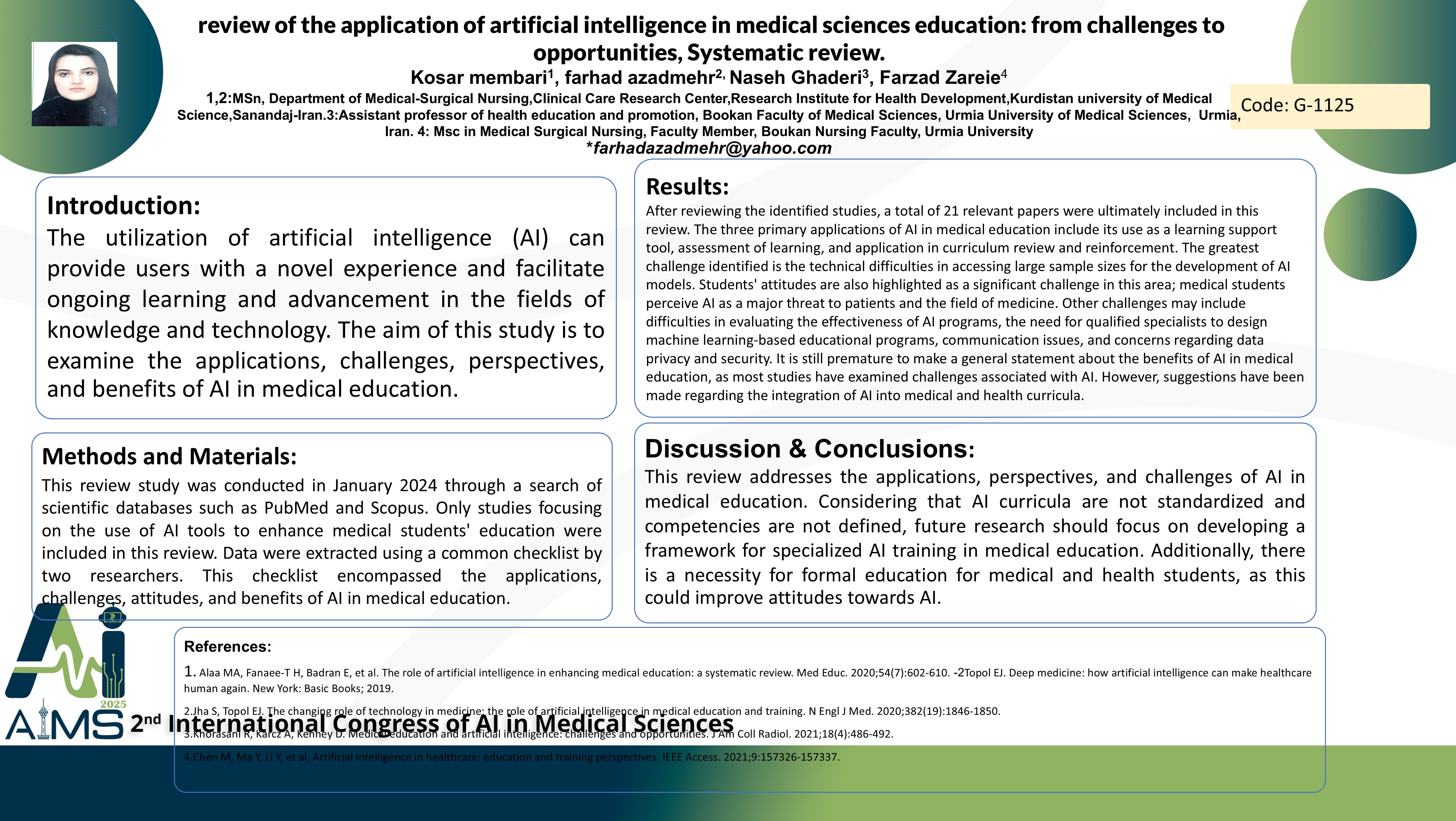مروری بر بررسی کاربرد هوش مصنوعی در آموزش علوم پزشکی: از چالشها تا فرصتها. مرور سیستماتیک
کد: G-1125
نویسندگان: Kosar Membari, Farhad Azadmehr * ℗, Naseh Ghaderi, Farzad Zareie
زمان بندی: زمان بندی نشده!
برچسب: دستیار مجازی هوشمند
دانلود: دانلود پوستر
خلاصه مقاله:
خلاصه مقاله
Introduction: The utilization of artificial intelligence (AI) can provide users with a novel experience and facilitate ongoing learning and advancement in the fields of knowledge and technology. The aim of this study is to examine the applications, challenges, perspectives, and benefits of AI in medical education. Research Method: This review study was conducted in January 2024 through a search of scientific databases such as PubMed and Scopus. Only studies focusing on the use of AI tools to enhance medical students' education were included in this review. Data were extracted using a common checklist by two researchers. This checklist encompassed the applications, challenges, attitudes, and benefits of AI in medical education. Findings: After reviewing the identified studies, a total of 21 relevant papers were ultimately included in this review. The three primary applications of AI in medical education include its use as a learning support tool, assessment of learning, and application in curriculum review and reinforcement. The greatest challenge identified is the technical difficulties in accessing large sample sizes for the development of AI models. Students' attitudes are also highlighted as a significant challenge in this area; medical students perceive AI as a major threat to patients and the field of medicine. Other challenges may include difficulties in evaluating the effectiveness of AI programs, the need for qualified specialists to design machine learning-based educational programs, communication issues, and concerns regarding data privacy and security. It is still premature to make a general statement about the benefits of AI in medical education, as most studies have examined challenges associated with AI. However, suggestions have been made regarding the integration of AI into medical and health curricula. Conclusion: This review addresses the applications, perspectives, and challenges of AI in medical education. Considering that AI curricula are not standardized and competencies are not defined, future research should focus on developing a framework for specialized AI training in medical education. Additionally, there is a necessity for formal education for medical and health students, as this could improve attitudes towards AI.
کلمات کلیدی
Medical Education, Artificial Intelligence, Learning Enhancement
